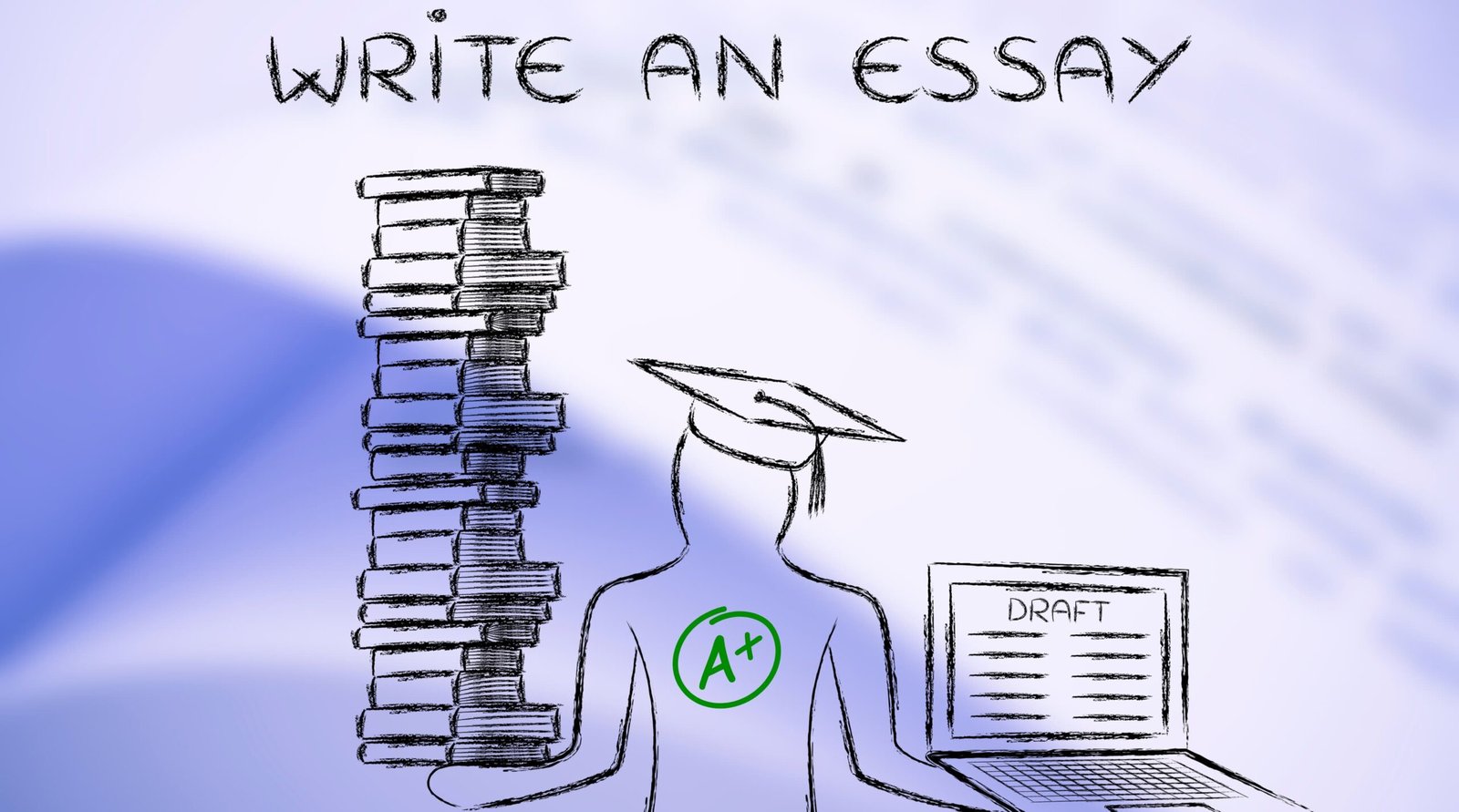Write Essay on AI and Climate Change – Step‑by‑Step Guide for UK Students
Writing a university essay that explores both artificial intelligence (AI) and climate change can seem daunting because each subject is complex in its own right. When combined, they touch on technology, science, policy and ethics. However, with careful planning you can turn this challenge into an opportunity to engage with two of the most important debates of our era.

This guide, written in UK English, outlines how to choose a focused angle, find credible evidence, organise your argument and address ethical questions. You will also find links to external resources and internal links to Urgent Assignment Help for additional support. By following these steps you can craft a clear and persuasive essay. By exploring both subjects together, you create space for interdisciplinary insights. Approach your essay with curiosity and discipline. This guide will help you write with confidence. If at any point you need personalised assistance, our tutors at Urgent Assignment Help are available via WhatsApp or our contact page.
1. Understand the Core Concepts
Before writing, build a solid foundation by understanding both AI and climate change. This will help you select a focused topic and avoid superficial analysis.
1.1 What Is Artificial Intelligence?
AI refers to technologies that enable computers and machines to perform tasks traditionally associated with human intelligence. These tasks include recognising patterns, learning from data and making decisions. In recent years, AI has evolved rapidly, thanks to advances in machine learning and neural networks. In the UK, AI applications range from medical diagnostics to managing energy grids and predicting traffic flows. When writing about AI, consider not only how the technology works but also its social, economic and environmental implications.
1.2 What Is Climate Change?
Climate change describes long‑term shifts in temperature and weather patterns, largely driven by human activities such as burning fossil fuels, deforestation and industrial emissions. Rising concentrations of greenhouse gases in the atmosphere are causing global temperatures to climb, leading to extreme weather events, sea level rise and ecological disruption. The UK government has committed to reaching net zero carbon emissions by 2050, making climate change a critical topic across university curricula. Understanding the science and policy behind climate change will provide context for your essay, particularly when assessing AI’s role in mitigation and adaptation.
1.3 Connecting AI and Climate Change
AI and climate change intersect in several important ways. Data‑driven models can improve climate predictions, optimise renewable energy systems and support conservation efforts. Conversely, the development and deployment of AI can contribute to carbon emissions through the energy demands of data centres and training large algorithms. Recognising both the benefits and drawbacks of AI in this context will help you write a balanced essay.
If you would like to explore these connections further, visit the Alan Turing Institute for research into data science and AI or consult the Intergovernmental Panel on Climate Change (IPCC) for authoritative reports on climate science.
2. Choose a Focused Essay Topic
Selecting a specific angle allows you to explore your subject deeply and present a clear thesis. A focused topic also makes research more manageable. Consider these steps when choosing your essay question:
- Identify an area of overlap. Look for specific problems where AI can contribute to solving climate challenges, such as improving renewable energy efficiency, supporting natural disaster responses or monitoring biodiversity. This helps you avoid generic essays that attempt to cover too much ground.
- Consult coursework requirements. Review your assignment brief to ensure your chosen topic aligns with your module objectives and assessment criteria. For instance, a module on machine learning may encourage technical analysis, while a policy course might focus on governance.
- Match your interests. Choose a topic you care about; this keeps you motivated to research and write.
Here are three potential topics with accompanying questions to illustrate how you might frame your essay:
- Flood forecasting: How can machine learning models improve early warning systems in the UK, and what are their limitations?
- Smart grids: To what extent can AI optimise renewable energy generation and support the UK’s transition to net zero?
- Wildlife monitoring: How effective are computer vision algorithms at detecting endangered species, and how do they influence conservation strategies?
Student communities like The Student Room and r/UniUK on Reddit can be helpful for gauging what others find engaging or challenging. By choosing a well‑defined topic, you set yourself up for success.
3. Conduct Thorough and Reliable Research
High‑quality evidence is the backbone of a persuasive essay. Follow these guidelines to gather relevant information and ensure your sources are trustworthy.
3.1 Use Scholarly Databases
Start with academic search engines such as Google Scholar and institutional libraries to find peer‑reviewed journal articles, conference papers and theses. These sources often provide detailed data and rigorous analysis. The UK’s National Archives and Parliamentary Office of Science and Technology also offer insightful reports on AI and climate policy.
3.2 Evaluate Credibility
Evaluate each source by considering the author’s expertise, the publisher’s reputation and the date of publication. In fast‑moving fields like AI, older studies may no longer be relevant; climate science is more stable but still benefits from recent data. Authoritative bodies such as the Met Office and the IPCC provide reliable climate information, while journals and institutes such as Nature Machine Intelligence and the AI Now Institute offer insights into AI.
3.3 Maintain a Research Log
Keep a list of your sources, including titles, authors and key points. Recording statistics and quotations as you read will save time during writing. Tools like Elicit can help you discover related papers and summarise their findings.
3.4 Diversify Perspectives
Include sources from different disciplines and stakeholders to gain a balanced view. Combine technical papers with policy documents, industry reports and commentary from NGOs. This approach ensures you consider the technical, social and economic implications of your topic.
4. Plan and Structure Your Essay
With your research complete, organise your ideas into a clear outline before you begin drafting. A logical structure improves readability and ensures every section supports your thesis.
4.1 Outline the Essay Framework
Most academic essays follow a similar format:
- Introduction – Introduce your topic, contextualise why it matters and state your thesis. For example: “This essay argues that AI‑driven flood forecasting can significantly reduce economic losses and save lives in the UK, although data privacy and energy consumption present important challenges.” Offer a brief overview of your essay’s structure.
- Body paragraphs – Divide your body into sections with subheadings. Each section should address a specific aspect of your topic, such as the current state of flood forecasting, how AI improves predictions, case studies of AI implementation and ethical considerations. Use topic sentences at the start of each paragraph to summarise the main idea. Provide evidence, analysis and transitions to maintain a smooth flow.
- Conclusion – Summarise your findings, restate your thesis and reflect on broader implications. You may suggest areas for further research or policy recommendations. Avoid introducing new evidence in the conclusion.
4.2 Integrate Case Studies
Case studies make your essay more engaging by showing how theories apply in practice. For example, if you discuss flood forecasting, describe a local council that implemented AI and explain the results. Evidence of improved warning times or reduced damage strengthens your argument.
4.3 Address Counterarguments
Acknowledging opposing viewpoints demonstrates critical thinking. For example, if critics argue that AI training consumes large amounts of energy, cite research on renewable energy powering data centres or more efficient hardware. Responding to counterarguments shows you have considered multiple perspectives.
5. Explore Ethical and Social Implications
AI can help solve climate problems, but it also raises ethical concerns that you should discuss in your essay. Including this dimension demonstrates your understanding of the broader context.
5.1 Energy Consumption
Training AI models requires significant computational power. Data centres supporting cloud‑based AI services consume large amounts of electricity, which can contribute to carbon emissions if powered by fossil fuels. When discussing AI solutions, emphasise efforts to use renewable energy sources and improve the energy efficiency of algorithms and hardware.
5.2 Data Privacy and Security
Many AI applications rely on collecting and analysing vast datasets. This raises questions about the privacy and security of personal or sensitive information. European regulations such as the General Data Protection Regulation (GDPR) govern how data is processed and stored. When writing about AI projects, highlight measures like anonymisation, encryption and regulatory compliance to protect individuals’ rights.
5.3 Bias and Fairness
AI algorithms learn patterns from data, which can contain embedded biases. For instance, if flood prediction models are trained on data from well‑monitored urban areas, they might perform poorly in rural communities. Discuss strategies for mitigating bias, such as diversifying training datasets, involving local stakeholders and regularly auditing models for fairness.
5.4 Climate Justice
Climate change disproportionately affects vulnerable populations. When exploring AI solutions, consider who benefits from the technology and who might be left behind. For example, ask whether AI‑optimised renewable energy systems reduce energy bills for low‑income households or whether they require expensive equipment that only affluent communities can afford. Including climate justice in your essay demonstrates social awareness and depth.
6. Write and Refine Your Essay
With your structure and research in place, begin drafting your essay. Pay attention to language, clarity and cohesion.
6. Write and Refine Your Essay
Use formal, clear language. Avoid slang and choose terms familiar to your discipline. Support each claim with evidence and explain why your data matters. Cite your sources accurately, following your department’s preferred style. Once your draft is complete, set it aside before editing. Read it aloud to detect awkward phrasing, ensure each paragraph supports your thesis and verify that the argument flows logically. Consider asking a peer to review your work or use professional editing services offered by Urgent Assignment Help.
7. Conclusion and Next Steps
Writing about AI and climate change offers an opportunity to engage with topics that will shape the future. By understanding the basics of both fields, choosing a precise essay topic, conducting thorough research and addressing ethical considerations, you can produce a compelling and persuasive essay. A structured approach will help you present your arguments clearly and back them up with robust evidence.
If you feel overwhelmed at any stage, remember that you are not alone. Urgent Assignment Help provides tailored support for UK students, from brainstorming topics to proofreading final drafts. You can reach us through our contact page or message us directly on WhatsApp. Our expert tutors will ensure your essay meets academic standards and stands out.
Writing about AI and climate change not only improves your understanding of these subjects but also develops transferable skills. You will learn to evaluate complex information, think critically about technology’s role in society and articulate nuanced arguments. These abilities are valuable beyond academia, whether you pursue a career in research, policy or business. By tackling modern challenges thoughtfully, you contribute to a more informed and responsible public discourse.
We have shared this guide on our professional network to foster discussion and help more students. Feel free to read and share the article on LinkedIn: Write Essay on AI and Climate Change – Step‑by‑Step Guide for UK Students. Your engagement helps others discover useful resources and join the conversation.


Sprunki Game truly elevates music creation with its fresh beats and intuitive design. It’s inspiring to see how it builds on Incredibox while adding its own creative flair. Check it out at Sprunki Game!
Thanks for sharing. I read many of your blog posts, cool, your blog is very good.
Thank you for your sharing. I am worried that I lack creative ideas. It is your article that makes me full of hope. Thank you. But, I have a question, can you help me?
Thank you for your sharing. I am worried that I lack creative ideas. It is your article that makes me full of hope. Thank you. But, I have a question, can you help me? https://accounts.binance.info/sv/register-person?ref=GQ1JXNRE